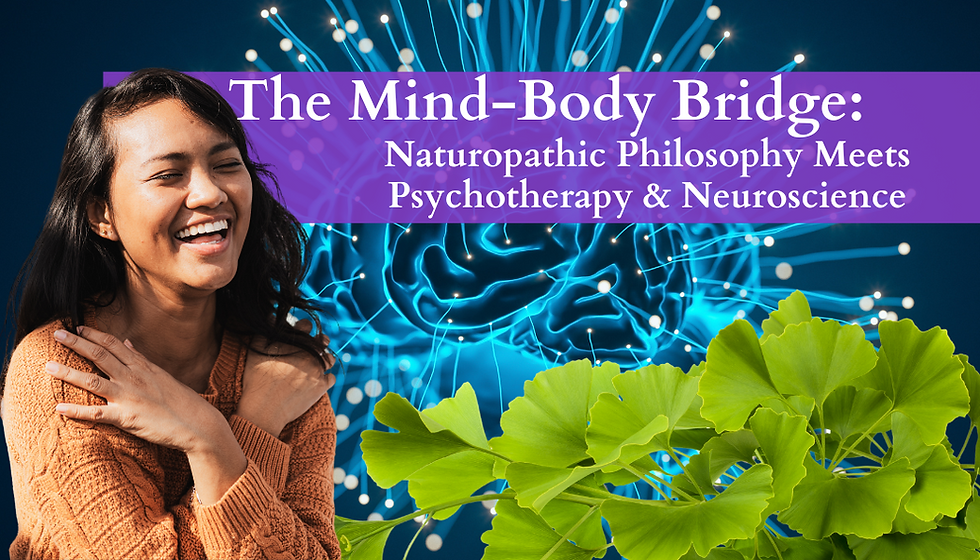Ketamine Assisted Psychotherapy (KAP): Your Q&A Guide and Resource Bank
- Dr. Soto

- Mar 22, 2024
- 2 min read

Ketamine is now an “off-label” treatment for various chronic “treatment-resistant” mental health conditions. Ketamine is a Schedule III medication that has long been used safely as an anesthetic and analgesic agent and now, often effectively for treatment of depression, alcoholism, substance dependencies, PTSD and other psychiatric diagnoses.
How Does It Work?
The current, most probable, understanding of ketamine’s mode of action is as an NMDA antagonist working through the glutamate neurotransmitter system. This is a very different pathway than that of other psychiatric drugs such as the SSRIs, SNRIS, lamotrigine, antipsychotics, benzodiazepines, etc.
Ketamine is classified as a dissociative anesthetic, dissociation meaning a sense of disconnection from one’s ordinary reality and usual self. At the dosage level pre prescribed to you for your KAP session and will self-administer, you will most likely experience mild anesthetic, anxiolytic, antidepressant and, potentially, psychedelic effects. Reaching a psychedelic or "dissociative" effect can be important for a "transformative" experience. This may well include a positive change in outlook and character.
Essential to the method is a time-out of usual experience, this period can vary in duration, usually 30 minutes to 2 hours, that tends to be dose and method of administration related. Relaxation from ordinary concerns and usual mind, while maintaining conscious awareness of
the flow of mind under the influence of ketamine is characteristic. This tends to lead to a disruption of negative feelings and obsessional preoccupations. It is our view that this relief and the exploration and experience of other possible states of consciousness are singularly impactful.
What is the Therapist doing?
The therapist acts as a guide to the experience and process of the experience and its impacts with our patients before, during and after the sessions. You may experience important changes in personality, mood and cognition during treatment, in the aftermath, and in the days and weeks that follow. Some experiences may be temporarily disturbing to you. The ketamine experience itself is designed to enable your own healing wisdom to be accessed and beneficial to you. The psychotherapy support you will receive will aid you in making your experience(s) valuable and understandable to you. We will endeavor to assist you in changing patterns of mind and behavior that are of concern and cause you difficulty.
Q | A |
What is KAP for? | KAP has shown positive and breakthrough effects for the following conditions: Anxiety Depression PTSD CPTSD Chronic Pain |
Is KAP safe? | As a Medical Procedure, KAP is considered safe with very low risks. The amount of Ketamine administered (via lozenge or injection) is much less than what would be used for anesthesia. |
Is KAP effective for Trauma? | If you have previously addressed your Trauma experience and are ready to be open to insights about your Trauma, KAP can be an effective treatment. (unaddressed or actively suppressed trauma, or resistance towards addressing trauma is a contraindication for KAP therapy) |
Is KAP effective for those with Childhood Trauma? | "Childhood maltreatment is associated with a poor treatment response to conventional antidepressants and increased risk for treatment-resistant depression...In contrast to conventional antidepressants, ketamine could be more effective in TRD patients with more childhood trauma burden."*
*The Impact of Childhood Maltreatment on Intravenous Ketamine Outcomes for Adult Patients with Treatment- Resistant Depression |
How effective can it be for my Symptoms? | In a systematic review of KAP, multiple studies demonstrated remission of symptoms for up to 12 weeks*
*Ketamine Assisted Psychotherapy: A Systematic Narrative Review of the Literature: |
How many KAP sessions would I need? | For up to 12 weeks remission of symptoms, this can occur after 1 KAP session, or after as little as 3 KAP sessions. Some patients have experienced complete remission of symptoms after 1 session. There is no standard KAP protocol at this time and experiences can vary. But remission of symptoms has been consistently observed for significant periods of time. |
Why is KAP gaining so much interest? | "Despite intense research efforts, the field {Psychiatric Pharmaceuticals} has had little success in developing antidepressant treatments with fundamentally novel mechanisms of action over the past six decades, leaving the field wary and skeptical about any new developments" As mentioned above, there are no rapid acting antidepressants and incidences of treatment-resistant depression are on the rise. KAP has demonstrated strong evidence of rapid relief that is sustained. KAP takes hours versus weeks for antidepressants
*Ketamine Assisted Psychotherapy: A Systematic Narrative Review of the Literature |
Why would I choose KAP when I can just go in for an infusion without the psychotherapy? | "Psychotherapy, provided before, during, and following ketamine sessions, can maximize and prolong benefits."* It is KAP as a treatment that is producing the results listed previously, Ketamine Therapy without psychotherapy do not show the same results in current research.
*Ketamine Assisted Psychotherapy: A Systematic Narrative Review of the Literature |
Resources:



